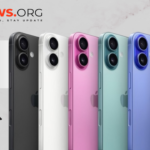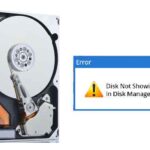DB2 is a relational database management system (RDBMS) developed by IBM.
Here are 21 Things You Have In Common With IBM DB2:
- Both DB2 and IBM are leaders in their respective fields: DB2 is a top-ranked relational database while IBM is a leading technology company.
- Both DB2 and IBM have been around for decades: DB2 was first released in 1983 while IBM was founded in 1911.
- Both DB2 and IBM are used by Fortune 500 companies: Over half of the Fortune 500 companies use DB2 and IBM has over 400,000 clients worldwide. You can check Remote DBA for more information.
- Both DB2 and IBM are reliable and efficient: DB2 has a proven track record of reliability and efficiency while IBM is known for its quality products and services.
- Both DB2 and IBM offer a wide range of products and services: DB2 offers a complete line of relational databases while IBM offers a variety of technology products and services.
- Both DB2 and IBM have a global presence: DB2 is available in over 70 countries while IBM has operations in over 170 countries.
- Both DB2 and IBM are committed to innovation: DB2 is constantly evolving with new features and capabilities while IBM has a long history of innovation.
- Both DB2 and IBM are trusted by businesses and governments: DB2 is used by many government organizations and corporations while IBM has a strong reputation for security and privacy.
- Both DB2 and IBM are widely used: DB2 is the second most popular database in the world while IBM products are used by millions of people around the globe.
- Both DB2 and IBM are backed by a large company: DB2 is developed and supported by IBM while IBM is a large, stable company.
- Both DB2 and IBM have a long history: DB2 has been around for over 20 years while IBM has been in business for over 100 years.
- Both DB2 and IBM are leaders in their respective markets: DB2 holds the number two market share position for relational databases while IBM is the largest technology company in the world.
- Both DB2 and IBM are used by some of the world’s largest organizations: The US Department of Defense, NASA, and the European Space Agency all use DB2 while IBM products are used by Fortune 500 companies, government agencies, and small businesses alike.
- Both DB2 and IBM are known for their quality: DB2 has earned multiple awards for its database products while IBM is known for its commitment to quality and customer satisfaction.
- Both DB2 and IBM have a strong commitment to customer service: DB2 offers 24/7 support while IBM has a team of dedicated customer service professionals.
- Both DB2 and IBM offer free trials: DB2 offers a free trial of its database software while IBM offers a variety of free trials for its products and services.
- Both DB2 and IBM have a presence in the open source community: DB2 is a member of the Eclipse Foundation while IBM is a major contributor to the Linux kernel.
- Both DB2 and IBM are used by developers: DB2 is a popular choice for development databases while IBM offers a variety of tools and services for developers.
- Both DB2 and IBM are used by businesses: DB2 is used by small businesses, medium businesses, and enterprise organizations while IBM products are used by businesses of all sizes.
- Both DB2 and IBM are used by governments: DB2 is used by government organizations around the world while IBM products are used by government agencies at all levels.
- Both DB2 and IBM have partners: DB2 has over 1,000 partners worldwide while IBM has partnerships with some of the largest companies in the world.
Conclusion:
There are many reasons why DB2 and IBM are two of the most popular choices for businesses and organizations. Both DB2 and IBM offer a wide range of products and services, they are both trusted by businesses and governments, they are both widely used, they are both backed by large companies, and they both have a long history. Additionally, both DB2 and IBM offer free trials, have a presence in the open-source community, and offer training and certification programs. Lastly, DB2 and IBM both have a global reach with operations in over 70 countries.



















Add Comment